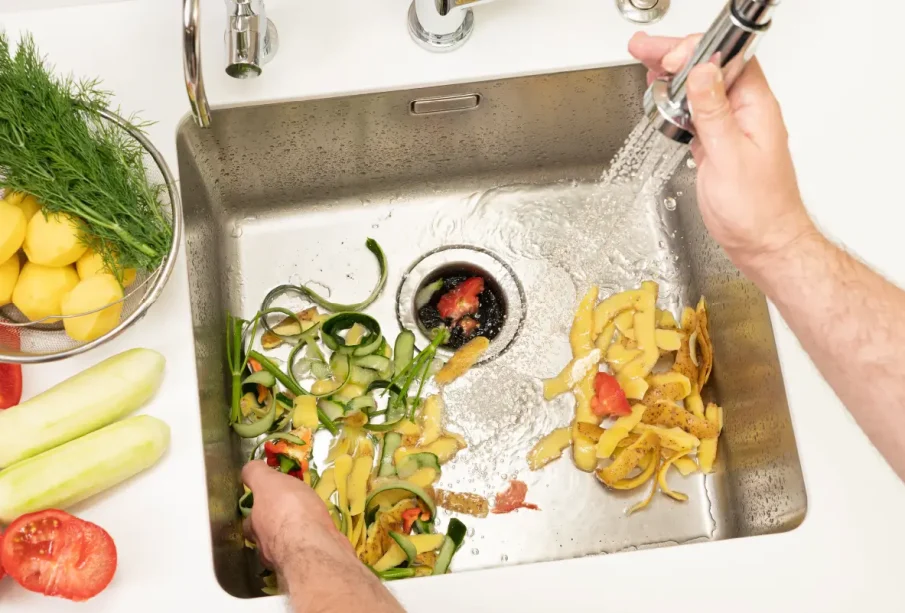Common Causes Of A Clogged Garbage Disposal And How To Avoid Them?

A garbage disposal is one of the most convenient kitchen appliances, designed to handle food scraps efficiently and reduce household waste. Yet, despite its usefulness, it is not indestructible. Many homeowners treat their garbage disposal as if it can handle anything, only to find themselves with a clog that disrupts their daily routine. When faced with a Clogged garbage disposal Houston residents often discover that professional plumbers can clear the blockage quickly while preventing further damage to the system. Understanding the common causes of clogged garbage disposals—and how to avoid them—can save time, money, and frustration.
Putting The Wrong Foods Down The Disposal
One of the primary reasons for clogs is the improper disposal of certain food items. Garbage disposals are powerful, but they are not designed to handle everything. Foods like fibrous vegetables (celery, corn husks, onion skins) tend to wrap around the blades, creating tangles that stop the unit from working effectively. In a similar vein, starchy items like rice, potatoes, and pasta can expand when water is added, creating a thick paste that clogs the drain.
How To Avoid It? Always scrape fibrous or starchy foods into the trash or compost instead of sending them down the disposal. Use the disposal only for small, manageable scraps that the blades can grind easily.
Grease, Fat, And Oil Buildup
Grease may go down as a liquid, but it quickly solidifies inside the pipes. Fat and oil build up into sticky coats over time, which trap food particles and impede water movement, resulting in obstinate jams. This buildup is one of the most common and damaging causes of garbage disposal blockages.
How To Avoid It? Never pour grease, fat, or cooking oil into the disposal. Instead, gather it in a container and, after it freezes, throw it in the garbage. Running cold water while using the disposal also helps prevent small amounts of residue from sticking to the pipes.
Overloading The Disposal
Another frequent cause of clogs is simply putting too much into the disposal at once. Large quantities of food overwhelm the blades and motor, making it harder to grind scraps thoroughly. The result is poorly broken-down food that gets stuck in the pipes.
How To Avoid It? Feed food scraps gradually into the disposal rather than all at once. Allow the unit to grind small portions before adding more, and always run water to help wash the waste down smoothly.
Lack Of Water Flow
Water is essential for moving ground food particles through the disposal and into the drain line. Without enough water, scraps can sit inside the disposal or pipes, leading to blockages. Many clogs occur simply because users fail to run water during and after using the disposal.
How To Avoid It: Always run a steady stream of cold water while operating the disposal and for several seconds afterward. This helps flush food particles completely through the system and prevents buildup.
Foreign Objects In The Disposal
Sometimes, garbage disposals get clogged not because of food, but because of items that should never have been inside. Silverware, bottle caps, sponges, or even small toys can accidentally fall into the unit. These objects jam the blades and block the drain, often requiring professional removal.
How To Avoid It? Be mindful of what goes into the sink. Use a sink strainer when rinsing dishes to catch unwanted items, and check the disposal before turning it on to ensure nothing foreign is inside.
Worn Or Dull Blades
A garbage disposal’s blades may grow dull with time, which may lessen its capacity to efficiently break down food. When scraps are not ground finely enough, they can clog the drainpipe and cause backups.
How To Avoid It? Maintain your disposal by grinding ice cubes occasionally, which helps sharpen the blades and clean out buildup. For older units with persistent problems, consider replacing the disposal to restore efficiency.
Final Thoughts
A clogged garbage disposal is more than an inconvenience—it can disrupt your kitchen routine, cause unpleasant odors, and even damage your plumbing system. Most clogs result from misuse, whether it’s putting the wrong foods inside, neglecting water flow, or overloading the unit. You can prolong the life of your disposal and maintain the efficiency of your kitchen by using it sensibly and doing basic maintenance. And when clogs do occur, knowing the cause helps ensure they are resolved quickly and safely, often with the help of a licensed professional.











